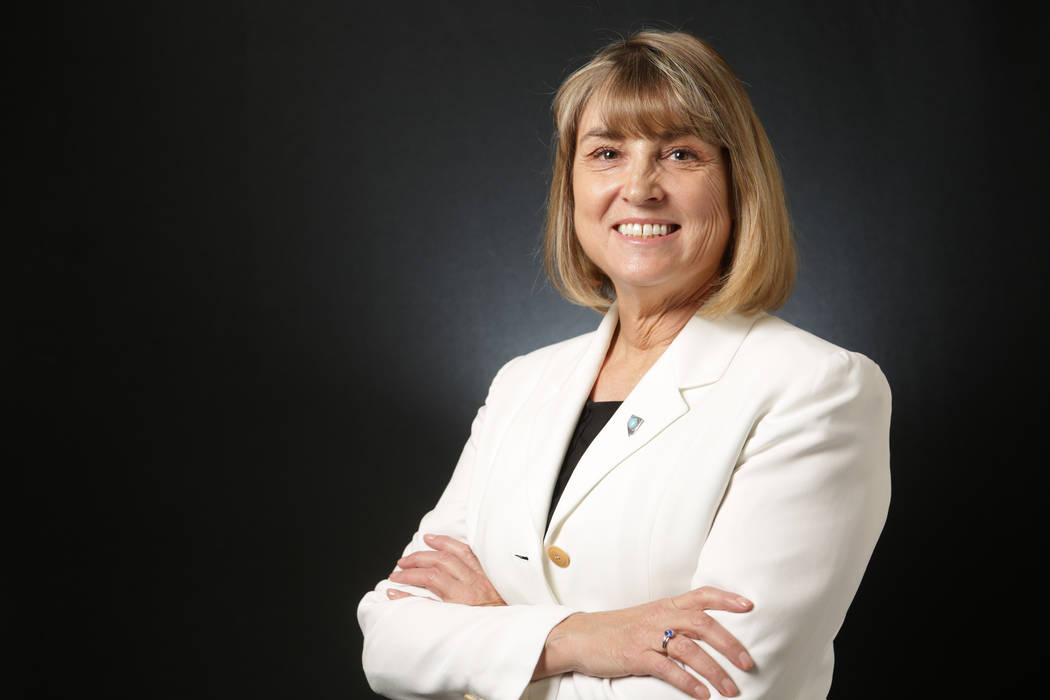Kate Marshall has plan to help Nevadans save for retirement
CARSON CITY — More than half of Nevada’s private-sector employees don’t have access to retirement programs, according to one study. Lieutenant Governor-elect Kate Marshall wants to change that.
“What that means is that there’s not an easily accessible way for them to save for retirement,” Marshall said in an interview with the Review-Journal.
According to an AARP study, about 57 percent of Nevada’s private-sector employees don’t have access to retirement plans at work. And for small businesses with fewer than 100 employees, 80 percent are without employer-sponsored retirement plans, according to AARP, which advocates on behalf of people who are 50 and older.
As those people age, the lack of saving for retirement becomes a financial burden not just on themselves and the entire system for social services, including Social Security, Marshall said.
“What you see is that if people are not preparing for their retirement, then when they retire it becomes part of the taxpayers’ burden,” she said.
That is something that Marshall, who was elected last month to be the state’s next lieutenant governor, hopes to change.
Marshall has worked for the last two years on pushing for the state to enact a state-supported retirement program, often referred to as an auto-IRA. It would require employers who don’t offer retirement plans to automatically enroll their employees in a state-administered program. Employees would have the option to opt-out.
More than 20 states are considering similar programs. Oregon was the first to launch its program — called OregonSaves — and 73 percent of eligible workers, or 49,661 people, now take part in the savings program, according to Joel Metlen, operations director for the Oregon Savings Network.
Marshall broached the idea during an interim task force this year, and Assemblywoman Ellen Spiegel is in the process of drafting a bill proposal with the effect.
Exactly how the program would run would be determined by an appointed board, but Marshall said she envisions it being set up like the 529 college savings programs that the state offers to help families set aside money for higher education costs.
In terms of costs, Marshall said there doesn’t have to be any for the state in setting it up, adding that it could potentially bring a small amount of money to the state via fees.
Beyond helping employees save, Marshall believes the program will be a boon to small businesses when it comes to attracting talent by allowing them to offer the state-run retirement program.
Randi Thompson, Nevada state director for the National Federation of Independent Businesses, which advocates on behalf of small businesses, said the key concerns with the auto-IRA program is liability. If the program loses money, for example, Thompson said she wants to know if the employer would be liable for the losses.
But the NFIP supports helping small business employees save, Thompson said.
“It’s critical that we get the message out that we need to be saving for retirement,” she said.
Beyond the auto-IRA, Marshall said she is pushing for the passage of a bill that would create a small business advocate in the state.
That bill, which is going to be carried by Senate Majority Leader Kelvin Atkinson, is also still in development. But Marshall said the idea would for the advocate to act as a guide of sorts for small business owners, helping them from basic steps like getting licenses from the secretary of state to handling letters from the Department of Taxation.
Contact Capital Bureau Chief Colton Lochhead at clochhead@reviewjournal.com or 775-461-3820. Follow @ColtonLochhead on Twitter.





























